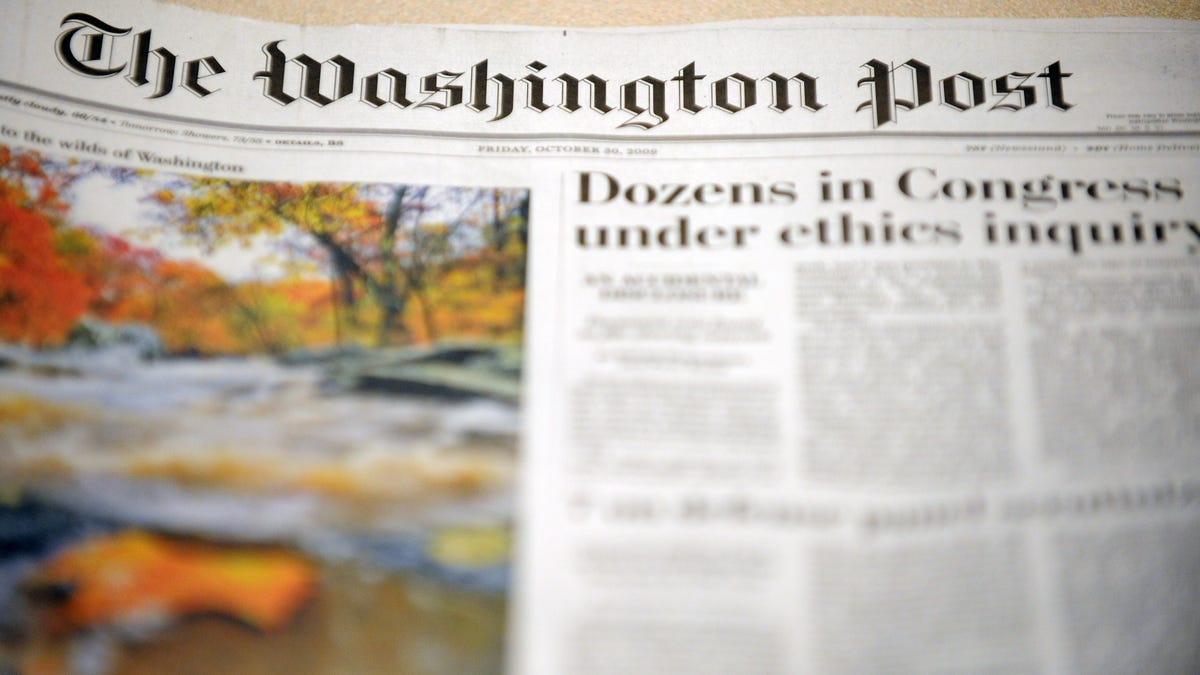Washington Post to start charging frequent site users
The newspaper will start requiring users who look at more than 20 articles or multimedia features a month to pay a fee, though it hasn't yet determined the amount.

The publication this summer plans to start charging users who access more than 20 articles or multimedia features a month. The Washington Post hasn't yet decided how much it will charge, according to an article on the newspaper's Web site.
Large portions of The Washington Post's audience will be exempt from fees, though, including home-delivery subscribers. Students, teachers, school administrators, government employees, and military personnel will have unlimited access to the Web site while in their schools and workplaces, the article said. And access to The Post's homepage, section front pages, and classified ads won't be limited.The newspaper business has been struggling to adapt to an increasingly online-centric world. Many Internet users expect free content, but the businesses still have to make money. Some, like News Corp.'s Wall Street Journal have put most of their content behind a paywall. Others,like The New York Times, allow users to read a certain number of articles for free each month before starting to charge them.
The Washington Post has long preferred to keep its online content free in order to attract readers and online advertisers.
The article about the shift today says the newspaper plans to release a new iPad application to help attract subscribers.
We've contacted The Washington Post and will update the report when we have more information.

